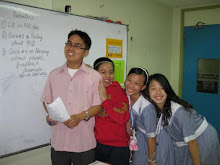
Early Life
García was born in Talibon, Bohol to Policronio García and Ambrosia Polestico (who were both natives of Bangued, Abra). Garcia grew up with politics, with his father serving as a municipal mayor for four terms. He acquired his primary education in his native Talibon, then took his secondary education in Cebu Provincial High School. He briefly took law courses at Silliman University in Dumaguete City. He then studied in Philippine Law School (now Philippine College of Criminology) and earned his degree in 1923. He was among the top ten in the bar examination. Rather than practice law right away, he worked as a teacher for two years at Bohol Provincial High School. He became famous for his poetry in Bohol, where he earned the nickname "Prince of Visayan Poets" and the "Bard from Bohol". He started his political career in 1925, scoring an impressive victory running for congressman representing the third district of Bohol. He was elected for another term, but served only until 1931 when he successfully ran for governor of Bohol. He served as provincial governor for two terms. He became a member of the congress in 1946, and was elected three times to the senate for three consecutive terms from 1941 to 1953.
Vice-Presidency
See Also: Presidency of Ramon Magsaysay
Garcia was the running mate of Ramon Magsaysay in the presidential election of 1953. He was appointed Secretary of Foreign Affairs by President Ramon Magsaysay, for four years concurrently serving as vice-president. As secretary of foreign affairs, he opened formal reparation negotiations in an effort to end the nine-year technical state of war between Japan and the Philippines, leading to an agreement in April 1954. During the Geneva Conference on Korean unification and other Asian problems, Garcia as chairman of the Philippine delegation attacked communist promises in Asia and defended the U.S. policy in the Far East. In a speech on May 7, 1954, the day of the fall of Dien Bien Phu, Garcia repeated the Philippine stand for nationalism and opposition of communism. Garcia acted as chairman of the eight-nation Southeast Asian Security Conference held in Manila in September 1954, which led to the development of the Southeast Asia Treaty Organization, known as SEATO.Presidency
Accession (1957)Vice-President Carlos P. Garcia was inaugurated as the 8th President of the Philipines upon Magsaysay's death, on March 23, 1957 at the Council of State Room, Executive Building, Malacañan Palace. The oath of office was administered by Chief Justice Ricardo Paras on March 17, 1957.
1957 Presidential Election
President Carlos P. Garcia won his opportunity to get a full term as President of the Philippines after the untimely death of President Ramon Magsaysay in a plane crash in March 1957. His running mate, Senator Jose Laurel, Jr. lost to Pampanga Representative Diosdado Macapagal. This was the first time in Philippine electoral history where a president was elected by a plurality and not majority, and in which the president and vice president came from different parties.
Domestic Policies
President Garcia exercised the Filipino First Policy, for which he was known. This policy heavily favored Filipino businessmen over foreign investors. He was also responsible for changes in retail trade which greatly affected the Chinese businessmen in the country. He also made a program focused on thriftiness.
Garcia's administration was characterized by its austerity program and its insistence on a comprehensive nationalist policy. On March 3, 1960, he affirmed the need for complete economic freedom and added that the government no longer would tolerate the dominance of foreign interests (especially American) in the national economy. He promised to shake off "the yoke of alien domination in business, trade, commerce and industry." Garcia was also credited with his role in reviving Filipino cultural arts.


No comments:
Post a Comment